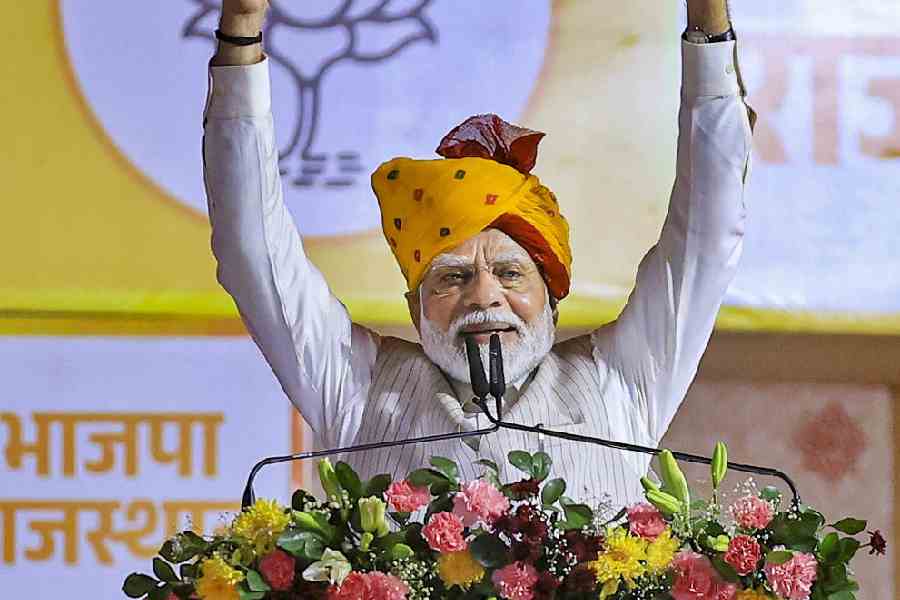It isn’t easy to displace Pakistan or China as public enemy number one in the popular Indian discourse. Justin Trudeau’s Canada has accomplished that. While a downward spiral in ties is almost never good for any two nations, their elected governments can at times benefit politically from tensions. New Delhi’s intensifying spat with Ottawa is one such case.
When Trudeau alleged that Indian agents might have had ties with the assassination of the Sikh separatist leader, Hardeep Singh Nijjar, he knew the consequences. They followed swiftly. India and Canada have each expelled the other’s local intelligence chiefs and issued stern warnings. India has stopped issuing visas to Canadians, suspending a service that some 277,000 people used in 2022. Negotiations for a potential trade deal, already in peril, have now been pushed into deep freeze. It is unclear whether Canada will retaliate with similar visa restrictions for Indian travellers, or whether New Delhi will take further punitive action against Ottawa. What is clear is that businesses that depend on the bilateral trade and tens of thousands of families with members in both nations will suffer.
Ottawa is seeking accountability from New Delhi over allegations of its involvement in Nijjar’s death. Trudeau has called the assassination a potential violation of Canadian sovereignty and by calling out India is aiming to draw a line in the sand. For India, a tough response is a legitimate pushback against suggestions that New Delhi violated international law.
But much more seems to be at play here. Whether or not Indian agents killed Nijjar, Trudeau’s comments in the Canadian Parliament were littered with careful caveats that raise questions about just how confident he is — at least at the moment — about the intelligence he based his accusations on. When you need to use words like “potential”, “links” and “alleged”, it is usually best in diplomacy to limit the articulation of any concerns to non-public interactions.
It’s hard to escape the feeling that Trudeau’s decision to openly point fingers at India is tied to the domestic political storm he faces amid a cost-of-living crisis and suggestions of Chinese interference in Canada. India is an important friend, but China is Canada’s second-biggest trading partner after the United States of America. If one has to be thrown under the bus to portray Trudeau as a strong leader in international relations, India’s a softer target.
But Narendra Modi won’t mind. In fact, he might as well send Trudeau a thank you note.
Nothing galvanises Modi’s support base more than a show of macho strength — real or perceived — by the prime minister. In 2019, the Balakot air strikes against alleged camps of the Jaish-e-Mohammad terrorist group in Pakistan-occupied Kashmir helped whip up nationalist sentiments that, many experts believed, added wind to the sails of Modi’s Bharatiya Janata Party in the Lok Sabha elections. While formally denying any role in Nijjar’s killing, expect the Modi government’s cheerleaders and propagandists to play up the suggestion that the prime minister can punish those India describes as enemies even if they are in hiding on the other side of the world. It’s a theme that will play well into the BJP’s narrative of a strong, muscular party. Opposition parties, including the Congress, will find it difficult to oppose the BJP on the diplomatic crisis with Canada since they won’t want to appear to be soft on a nation that points accusatory fingers at India. That is especially so on the Khalistan issue, where the Congress’s methods to crush the movement also raised serious human rights concerns.
While Canada’s Western allies might pretend to stand by it, they ultimately need India as a counterweight to China. Any preaching on international law also rings hollow when coming from the US and its friends that have carried out illegal assassinations in multiple other countries.
So buckle up for this ride. The governments of neither Canada nor India will mind if their diplomatic crisis drags on.
Charu Sudan Kasturi is a senior journalist who writes on foreign policy and international relations











